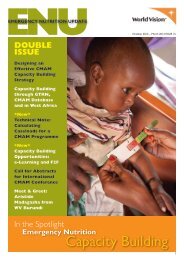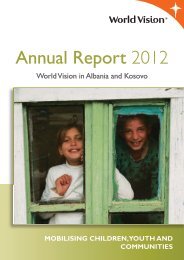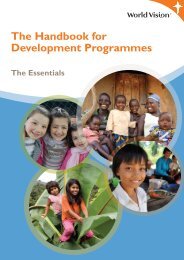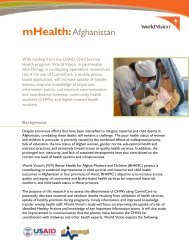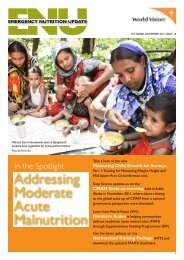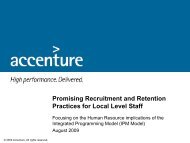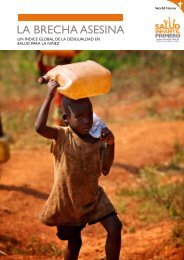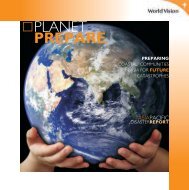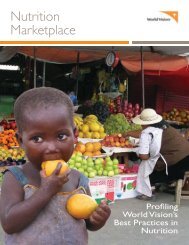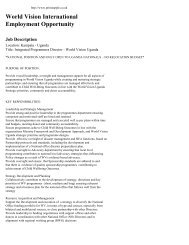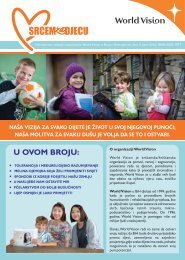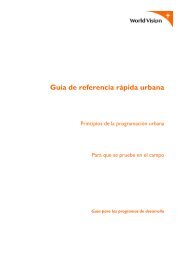the right to inclusive education for children with disabilities
the right to inclusive education for children with disabilities
the right to inclusive education for children with disabilities
You also want an ePaper? Increase the reach of your titles
YUMPU automatically turns print PDFs into web optimized ePapers that Google loves.
• All citizens of <strong>the</strong> Republic of Albania or <strong>for</strong>eign nationals residing in <strong>the</strong> Republic of Albania, at <strong>the</strong>age specified by this Law, <strong>with</strong>in <strong>the</strong> borders of <strong>the</strong> Republic of Albania, are ensured attendancein <strong>education</strong>al institutions <strong>with</strong>out discrimination on <strong>the</strong> bases of race, color, sex, language, faith orreligious affiliation, nationality, ethnicity or social origin, property, kinship affiliation, health conditionsor o<strong>the</strong>r status <strong>the</strong> citizen might have;In article 7 about MAIN PRINCIPLES ON THE RIGHT TO EDUCATION, it is provided:• Each student is entitled <strong>the</strong> <strong>right</strong> <strong>to</strong> quality <strong>education</strong>.• Students from families in need, students <strong>with</strong> special needs and those <strong>with</strong> learning difficulties, areentitled <strong>the</strong> <strong>right</strong> <strong>to</strong> special care.Chapter 12, section 76 of this draft, is about <strong>education</strong> of <strong>children</strong> <strong>with</strong> special needs, which in <strong>the</strong> missionand principles, is clearly stated below:• In accordance <strong>with</strong> <strong>the</strong> mission of pre-university <strong>education</strong> system and its goals, defined in thisLaw, <strong>the</strong> <strong>education</strong> of <strong>children</strong> <strong>with</strong> special needs aims at developing <strong>the</strong> full potential of individuals,helps improve <strong>the</strong> quality of <strong>the</strong>ir lives preparing <strong>the</strong>m <strong>for</strong> full integration in society and at work.• Inclusion and integration of <strong>children</strong> <strong>with</strong> special needs in mainstream kindergartens and schoolsof basic <strong>education</strong> is of primary importance. Attendance in specialized <strong>education</strong>al institutions, isgenerally temporary.• In preschool and basic <strong>education</strong> institutions, <strong>the</strong> curriculum compiled and implemented <strong>for</strong>students <strong>with</strong> special needs, is cus<strong>to</strong>mized in accordance <strong>to</strong> physical, mental, emotional and socialdevelopment of students.• Personalized programs <strong>for</strong> students <strong>with</strong> special needs in mainstream <strong>education</strong>al institutions, aredeveloped by a committee composed of teachers of various fields of learning, by psychologistand an external specialist of <strong>the</strong> <strong>children</strong> <strong>with</strong> special needs. To implement a suitable program, it isimperative that in its conception, parents be involved also.• The ministry, in cooperation <strong>with</strong> <strong>the</strong> base unit of <strong>the</strong> respective local government, provides<strong>education</strong> <strong>for</strong> <strong>children</strong> <strong>with</strong> special needs in one of two types of <strong>education</strong>al institutions, <strong>the</strong>mainstream or specialized one.This is <strong>the</strong> first time that law envisages personalized curriculums on <strong>the</strong> basis of which <strong>children</strong> <strong>with</strong><strong>disabilities</strong> and learning difficulties should be educated.in article 77 of this draft it is mentioned <strong>for</strong> <strong>the</strong> first time a multidisciplinary assessment commission,drifting away from <strong>the</strong> medical model of assessment:• Under <strong>the</strong> local <strong>education</strong>al unit, it is set up <strong>the</strong> assessment committee that consists of doc<strong>to</strong>rs,psychologists, teachers, specialists <strong>for</strong> <strong>children</strong> <strong>with</strong> special needs, social workers. Parents have <strong>the</strong><strong>right</strong> <strong>to</strong> participate in discussions of <strong>the</strong> committee about <strong>the</strong>ir <strong>children</strong>.• Assessment Committee determines <strong>the</strong> type of pre-school institution and that of <strong>the</strong> basic<strong>education</strong>, that <strong>the</strong> child <strong>with</strong> special needs should attend, according <strong>to</strong> criteria established by<strong>the</strong> Ministry of Education and Science, and <strong>the</strong> Ministry of Health. Based on <strong>the</strong> judgment of <strong>the</strong>committee, <strong>the</strong> child <strong>with</strong> special needs starts first grade at age six <strong>to</strong> nine and is allowed <strong>to</strong> pursuebasic <strong>education</strong> until <strong>the</strong> age of nineteen years. Assessment Committee determines which <strong>children</strong><strong>with</strong> special needs are included in compulsory <strong>education</strong> and who are enrolled in <strong>education</strong>alinstitutions on basis of <strong>the</strong> desire of parents. At <strong>the</strong> request of parents, <strong>the</strong> committee decides that<strong>the</strong> child start primary <strong>education</strong> at age five or seven.• O<strong>the</strong>r duties of this committee will be determined <strong>with</strong> a sublegal act of <strong>the</strong> Minister.article 78 states how <strong>education</strong> of <strong>children</strong> <strong>with</strong> special needs is accomplished:1. The attendance of kindergarten/school <strong>for</strong> <strong>children</strong> <strong>with</strong> special needs, is regulated as follows:38 The <strong>right</strong> <strong>to</strong> Inclusive Education <strong>for</strong> <strong>children</strong> <strong>with</strong> Disabilities



